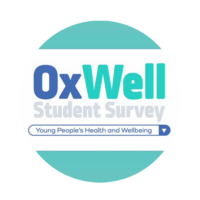school-based interventions
-

Self-harm E-learning for School Staff: Co-production of the SORTS Toolkit
Self-harm among adolescents is increasing in prevalence and there is a lack of evidence-based, whole-school approaches to support students and staff with their response to self-harm. This blog discusses the need for a whole-school approach to self-harm training in schools alongside the SORTS study, which used co-production methods to develop the Supportive Response to Self-Harm in Schools (SORTS) toolkit.
Read more -

TeaLeaF- task shifting children’s mental health care to primary school teachers in the Darjeeling Himalayas of West Bengal, India
TeaLeaf-Mansik Swastha (Teachers Leading the Frontlines- Mental Health) is a research-led community-based intervention which sees the “shifting” of mental health care to primary school teachers in the Darjeeling Himalayas of West Bengal using evidence-based therapy techniques.
Read more -

The Sustainability of the Incredible Years Teacher Classroom Management Programme: Insights from UK Primary School Teachers
The current youth mental health crisis highlights the need for preventive and early intervention strategies like the Incredible Years programmes. The Incredible Years Teacher Classroom Management programme has shown positive effects on teachers’ classroom management strategies and pupil mental health. In this blog, we discuss teachers’ views on the sustainability of the programme, necessary to maintain its desired benefits in the longer term.
Read more -

Missing the Context: Social Inequalities and School-Based Mental Health Interventions
In this Papers Podcast, Dr. Karen Mansfield discusses her JCPP Advances Editorial Perspective ‘Missing the context: The challenge of social inequalities to school‐based mental health interventions’.
Read more -

RESHAPE Study: Key Takeaways on Young Peoples’ Lockdown Experiences
In this ‘RESHAPE Study’ series episode, Professor Tamsin Ford and Lauren Cross explore the lockdown experiences of young people and parents, as well as discuss the reintegration back into pre-pandemic routines.
The ‘RESHAPE Study’ series is a new mini-in conversation series that will explore the RESHAPE study and the impact of its findings for parents, teachers, policymakers, and mental health professionals.
Read more -

RESEED – the perceived impact of an enhanced usual care model of a novel, teacher-led, task-shifting initiative for child mental health
Video abstract from Setareh Ekhteraei and Choden Dukpa on their co-authored CAMH journal Short Research Article ‘RESEED – the perceived impact of an enhanced usual care model of a novel, teacher-led, task-shifting initiative for child mental health’.
Read more -

JCPP 2023 Special Issue – ‘Innovation in Child and Adolescent Mental Health Interventions’
The Journal of Child Psychology and Psychiatry (JCPP) are delighted to announce the JCPP 2023 Special Issue on ‘Innovation in Child and Adolescent Mental Health Interventions’, edited by Paul Ramchandani, Tim Dalgleish, Joan Luby, Bradley Peterson, and Edmund Sonuga-Barke.
Read more -

Bridging the Child Mental Health Care Gap in LMICs: RESEED and Task-shifted, Teacher-led Care
In this Papers Podcast, Dr. Christina Cruz (pic), Dr. Michael Matergia, and Priscilla Giri discuss their co-authored CAMH journal Short Research Article ‘RESEED – the perceived impact of an enhanced usual care model of a novel, teacher-led, task-shifting initiative for child mental health’.
Read more -

The Role of Early Childhood Education in Supporting the Mental Health of Children
Professor Kathy Sylva OBE delivered this Keynote lecture ‘The Role of Early Childhood Education in Supporting the Mental Health of Children’ on Thursday 9 November at the ACAMH Awards. Professor Sylva was the recipient of ACAMH’s Michael Rutter Medal for Lifetime Contribution to Child and Adolescent Mental Health.
Read more -

Friendships and Mental Health: Insights from the OxWell Student Survey
The ‘Insights from the OxWell Student Survey‘ series is a new mini-in conversation series that will explore the OxWell study and the impact of its findings for parents, teachers, policymakers and mental health professionals.
In this episode, Tanya Manchanda comments on the friendship findings from the OxWell survey, including an insight into the impact of friendships on mental health outcomes and friendship interventions for young people.
Read more